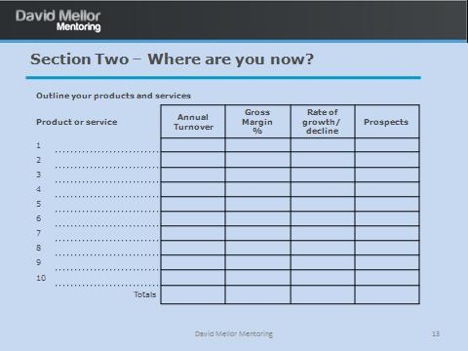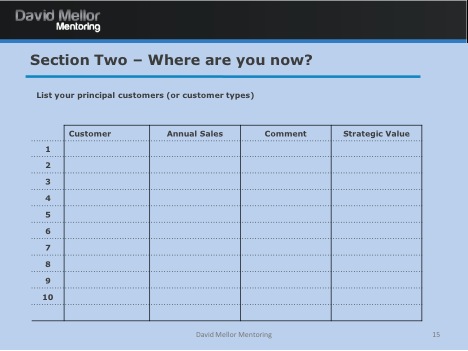#7: Generating business leads
Last time we looked at the second key challenge – Behaviours and Attributes. This time we will look at the third one – Lead Generation.
It is very important that you can identify and then work to develop the ingredients necessary to generate the number of leads you will need to achieve your financial targets.
The first of the key ingredients relates to your Sales Process. Do you have a process that quite simply will turn strangers into cash in the bank? You will need to be able to qualify in the business you want and qualify out the business you do not want. Otherwise you run the risk that you expend too much time and energy on potential timewasters and potential bad debts.
One additional benefit is that the qualification process should remove all the reasons for not doing the deal, and so asking for the business is a less scary prospect. We will return to consider this in more detail in a later article.
The second ingredient is Routes to Market. How many do you have? You will certainly have more than one. They could include:
- Direct – i.e. you make the contact yourself
- Indirect – someone refers the business to you (probably in the hope that he or she would then feel motivated to return the favour)
- Introducer – someone refers the business to you and you pay them some form of finder’s or introducer’s fee
- Partner – you team up with someone else so that together you can win business neither of you could win on your own.
- Networking – you build relationships either at formal networking events or trade fairs/seminars/conferences where you have an opportunity to network
The third ingredient is Networking itself. How much do you do? Is it the right events and with the right people? Can you create your own network rather than relying on those created by others? Again, we will revisit this in a subsequent article.
So, give some thought to where your leads are going to come from, as you may need more than you think to hit an acceptable conversion ratio from lead to client.
Posted in: Consultancy
Leave a Comment (0) →

